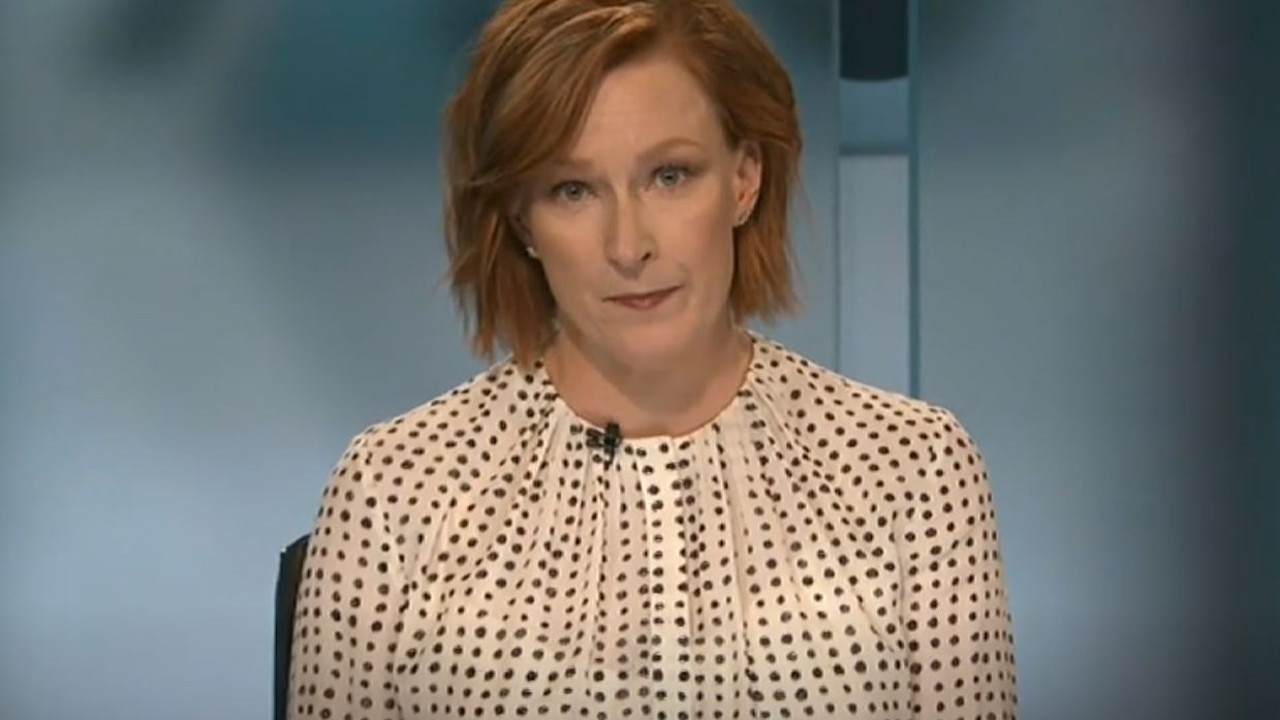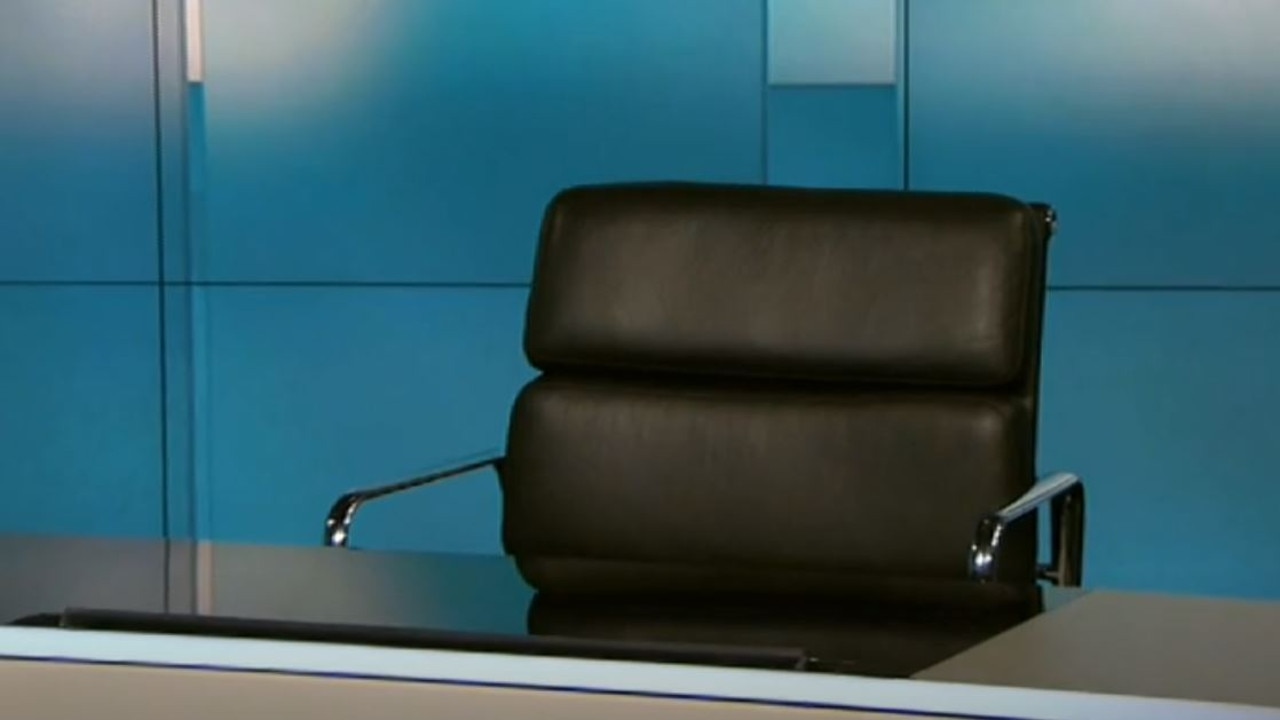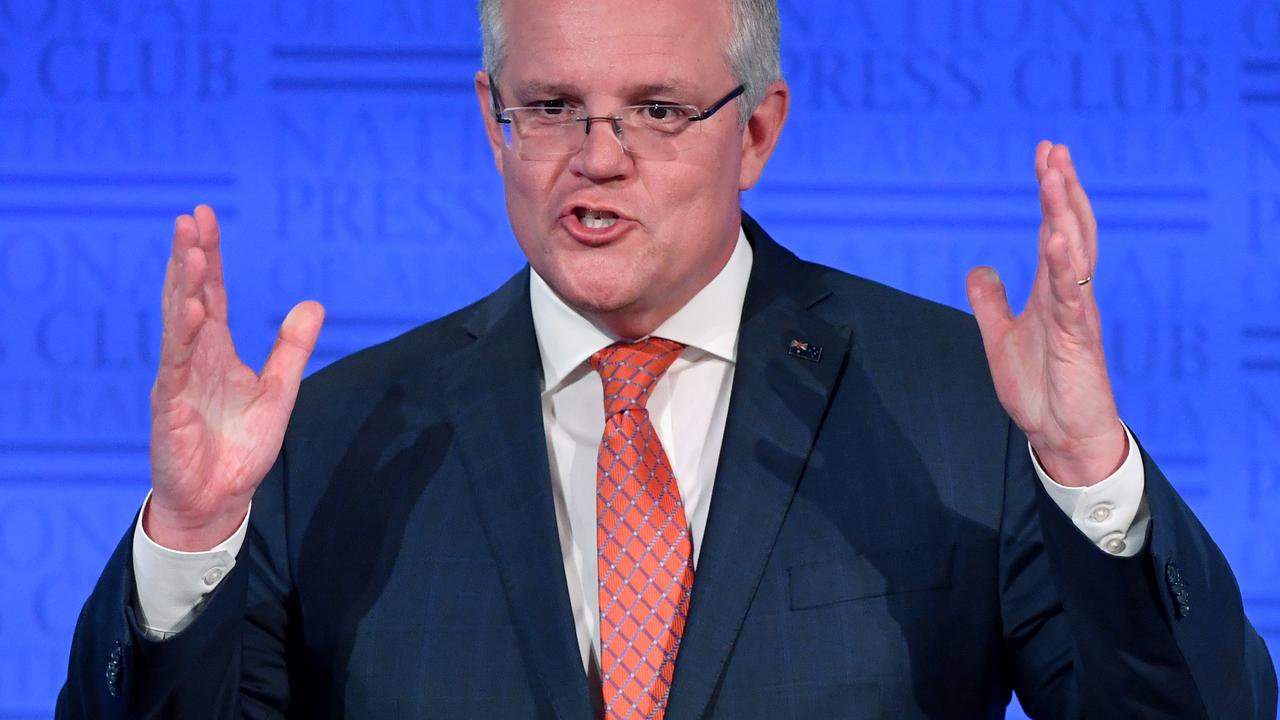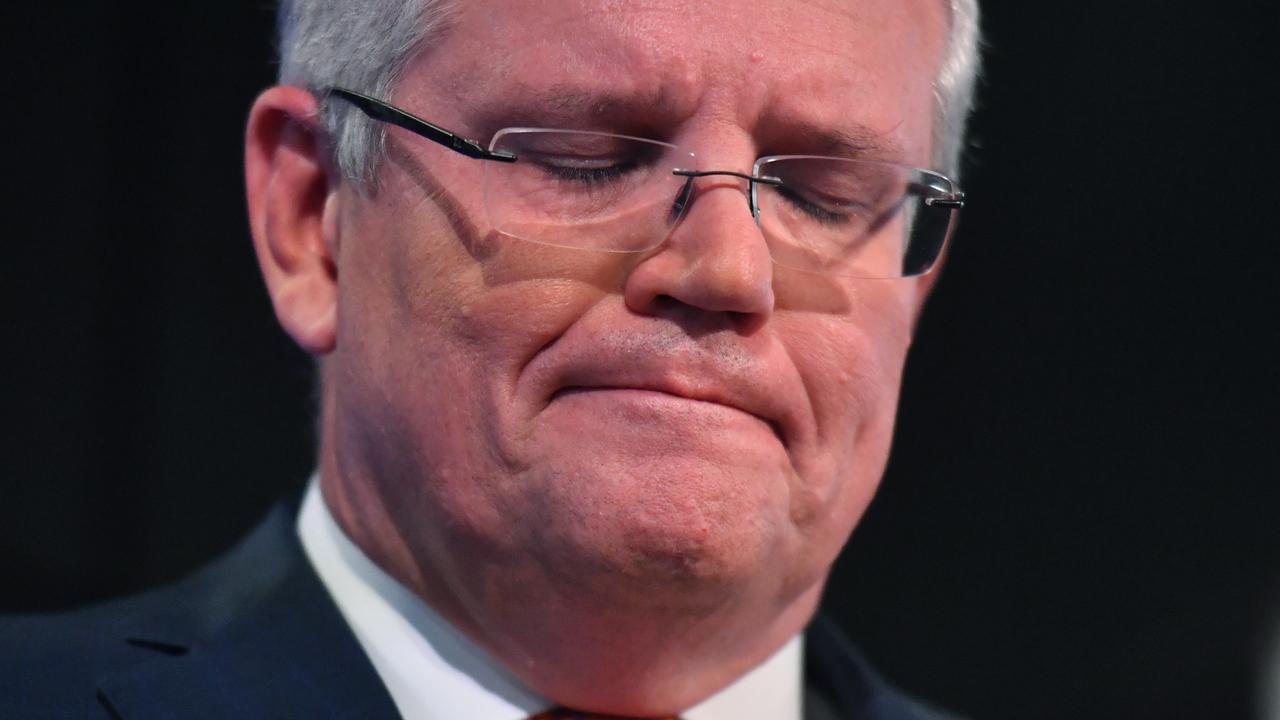Bridget McKenzie’s empty chair and Scott Morrison’s empty suit: A week of the government dodging accountability
With one carefully chosen word, the Prime Minister tried to brush off an onslaught of tough questions. It was a hugely telling moment.
COMMENT
Viewers tuning in to 7.30 on Thursday night were treated to the wonderfully bizarre sight of Leigh Sales interrogating an empty chair.
“Why did you ignore the advice of Sport Australia?” she asked.
“How is this not politically targeted spending of taxpayer money, and why shouldn’t you resign?
“Were the Prime Minister’s office or the Liberal Party headquarters aware?”
OK, I admit, I’m embellishing slightly here. Sales wasn’t actually giving a chair the Jack Bauer treatment.
She was reeling off the questions she would have asked Bridget McKenzie about the sport rorts scandal, if the minister had deigned to show up and put her butt in said chair instead of cravenly rejecting her fourth interview request in two weeks.
“We’ll keep trying to secure the minister for an interview,” Sales remarked dryly.
Unless Ms McKenzie has secretly spent the last fortnight in quarantine after returning from Wuhan, there is only one plausible reason for her decision to stay away from the cameras – she is terrified of being confronted with tough questions.
She was, after all, the minister responsible for the government hijacking taxpayers’ money from a $100 million sport grants scheme and redirecting it to bolster its chances of winning re-election.
RELATED: Spreadsheet laughably exposes $100 million rort
RELATED: New bombshell rocks embattled Bridget McKenzie
You must admit, there was a certain perverse wisdom in Ms McKenzie’s absence. Not showing up at all guaranteed she wouldn’t say anything stupid on live television, which is always a very real risk for the calibre of politician we enjoy in this country.
But her chosen method for dodging questions was particularly conspicuous.


The thing is, it was only slightly worse than the alternative, which is what Prime Minister Scott Morrison served up to us this week when he was grilled about the scandal at the National Press Club.
To quote my old maths teacher: “To his credit, he did answer some questions, albeit wrongly.”
Astonishingly, Mr Morrison defended the rorted scheme, repeating the laughably empty government talking point that all the beneficiaries of the program were “eligible”.
The problem, of course, was never one of eligibility. It was that Ms McKenzie ignored the recommendations of an independent body which ranked grant applications based on merit, and instead doled out the cash to whichever projects happened to be in seats the government needed to win.
The correct answer to such obvious misconduct would be to sack Ms McKenzie, apologise profusely to the clubs she wrongly snubbed and figure out who else was involved – including, if applicable, anyone in the Prime Minister’s own office.
Mr Morrison did not seem particularly interested in any of that.
RELATED: Scott Morrison defends rorted scheme at National Press Club
RELATED: Government’s laughable excuse for rorts scandal
Some would argue a wrong answer is better than no answer, and better than Mr Morrison failing to appear at all.
I’ll concede that point. Yes, he did better than Ms McKenzie. He showed up and stood at the podium. But like his minister, Mr Morrison was determined to avoid accountability.
Faced with reporters’ difficult (and entirely valid) questions, his first response was to try to delegitimise them.

Here are the two most telling exchanges – one with The Guardian’s Sarah Martin, and the other with Andrew Probyn from the ABC.
Martin: “Are you suggesting that there was nothing wrong as a matter of principle in using public funds for your own private political interests?”
Morrison: “Well, I just reject the premise of the question. That is not why we did it.”
Martin: “Why did you do it?”
Morrison: “To support local communities with the sporting infrastructure that they need to bond together, to be cohesive and ensure that girls didn’t have to change out the back of the shed. You can have an editorial on it, if you like, you’re welcome to that. That’s not why I or the government did it.”
Note Mr Morrison’s dismissal of her question as an “editorial”.
Probyn: “What do you say to the hundreds of community groups, not-for-profits, councils who spent a lot of time putting together their grant applications, and did so thinking that the process would be one that was going to be devised by merit, as opposed to political advantage?”
Morrison: “Andrew, I will put your editorial to one side, and your commentary on it. That is your view, and that is what you have put forward.”
There’s that word again, “editorial”. And the Prime Minister’s use of it here is ridiculous.
It is not Martin’s opinion that the government used public funds for its own private political interests. And it is not Probyn’s opinion that the money was dished out according to political advantage instead of merit.
Those are facts. They were laid out, in incontrovertible and inescapable detail, by the Auditor-General’s report. The Prime Minister can’t escape those facts by treating them with contempt.

In the name of fairness, I should acknowledge that Mr Morrison is not the first politician to dodge fair questions. Nor, in fact, is he the pioneer of this particular method. He has actually borrowed the “editorial” line from his predecessor, Malcolm Turnbull.
As Mr Morrison obfuscated at the Press Club, The Guardian’s Paul Karp went back and dug up the transcript from the first of many times Mr Turnbull used the tactic, during the debate over Section 18C of the Racial Discrimination Act in March of 2017.
“Are we going to have a plebiscite on 18C? It is a contentious social reform that everyone has a stake in. Why are elites allowed to decide this issue, but same-sex marriage is going to be done by a majoritarian popular vote?” Karp asked at the time.
“Thanks for the editorial,” Mr Turnbull shot back, no doubt thinking himself quite clever.
Another reporter got the same treatment several months later when they asked a question – admittedly a facetious one – about the government’s energy policies.
“It is really just a tinker with consumer laws. Wouldn’t a significant and substantial reform be having an energy policy?” the journalist asked.
“Thanks for the editorial,” said Mr Turnbull again, promptly moving on to another question.
This became a recurring feature of his press conferences.
Given Morrison has now rebooted the "editorial" line, I thought I'd got back to the vault - the FIRST EVER recorded instance was Turnbull in answer to my question #auspol pic.twitter.com/IqKydEcxma
— Paul Karp (@Paul_Karp) January 29, 2020
A few months later, someone copped it for asking about energy policy pic.twitter.com/sE4XQbSf8K
— Paul Karp (@Paul_Karp) January 29, 2020
The tactic was utter crap when Mr Turnbull used it, and it stinks no less pungently now.
When Mr Morrison waves away uncomfortable facts by pretending they are merely the questioner’s opinion, he disrespects the people he is supposed to be serving.
Those people were screwed over when Ms McKenzie used their taxpayer dollars to play politics, and they deserve their concerns about the government’s misconduct to be taken seriously, not brushed aside.
Ms McKenzie gave us an empty chair. At the moment, Mr Morrison is acting like an empty suit. It’s time to stop dodging and start leading.
Are you satsified with the Prime Minister’s response? Have your say in the comments, or on Twitter | @SamClench




